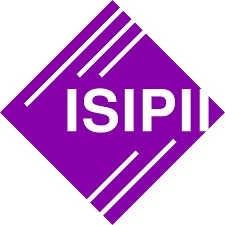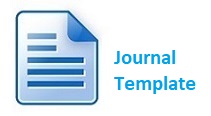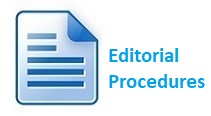Hubungan antara kemampuan literasi digital dengan pencegahan berita hoaks di kalangan mahasiswa
Abstract
Keywords
Full Text:
PDFReferences
Astuti, Y. D., & Mustofa, M. (2020). Persepsi remaja muslim Yogyakarta terhadap peredaran hoaks di media sosial. KOMUNIKA: Jurnal Dakwah Dan Komunikasi, 14(1), 47–62. https://doi.org/10.24090/komunika.v14i1.2865
Bahri, S. (2021). Literasi digital menangkal hoaks Covid-19 di media. Jurnal Ilmu Komunikasi, 10(1), 16–28.
Belshaw, D. A. J. (2012). What is “digital literacy”? A pragmatic investigation., (Thesis Doctoral). Durham University. Retrieved from http://etheses.dur.ac.uk/3446/
Christanda, F. V. (2020). Sikap mahasiswa terhadap berita dan hoaks di media sosial. Universitas Sanata Dharma. Retrieved from https://repository.usd.ac.id/36361/2/149114177_full.pdf
Fitriarti, E. A. (2019). Urgensi literasi digital dalam menangkal hoax. MetaCommunication; Journal Of Communication Studies, 4(2), 219–231. https://doi.org/10.20527/mc.v4i2.6929
Gilster, P. (1997). Digital literacy. New York: Wiley Computer Pub.
Hasanah, R. L., Kholifah, D. N., & Alamsyah, D. P. (2020). Pengaruh modal, tingkat pendidikan dan teknologi terhadap pendapatan UMKM di Kabupaten Purbalingga. Kinerja: Jurnal Ekonomi Dan Manajemen, 17(2), 305–313.
Hutahaean, J. (2014). Konsep sistem informasi. Yogyakarta: Deepublish.
Iqbal, M. (2019). Efektifitas hukum dan upaya menangkal hoax sebagai konsekuensi negatif perkembangan interaksi manusia. Literasi Hukum, 3(2), 1–9. Retrieved from https://jurnal.untidar.ac.id/index.php/literasihukum/article/view/1976/pdf
Irawan, A. (2019). Aktivitas anak-anak dan pemuda dalam penggunaan internet. CyberSecurity Dan Forensik Digital, 1(2), 50–56. https://doi.org/10.14421/csecurity.2018.1.2.1372
Masyarakat Telematika Indonesia. (2017). Hasil survey wabah hoax nasional 2017. Retrieved from https://mastel.id/hasil-survey-wabah-hoax-nasional-2017/
Mathar, T. (2014). Authors collaboration in digital literacy from 1997 to 2013: A bibliometric study. Khizanah Al-Hikmah: Jurnal Ilmu Perpustakaan, Informasi, Dan Kearsipan, 2(2), 158–169. Retrieved from https://journal.uin-alauddin.ac.id/index.php/khizanah-al-hikmah/article/view/131
Pratiwi, N., & Pritanova, N. (2017). Pengaruh literasi digital terhadap psikologis anak dan remaja. Semantik, 6(1), 11–24. https://doi.org/10.22460/semantik.v6i1.p11-24
Purnamayanti, A., & Oktaria, N. (2022). Kesiapan perpustakaan SMA Muhammadiyah 2 Bandar Lampung dalam pengembangan website e-perpustakaan. Informatio: Journal of Library and Information Science, 2(1), 19–28.
Purwanza, S. W., Wardhana, A., Mufidah, A., Renggo, Y. R., Hudang, A. K., Setiawan, J., … Rasinus, R. (2022). Metodologi penelitian kuantitatif, kualitatif dan kombinasi. Bandung: Media Sains Indonesia.
Riyanto, A. D. (2020). Hootsuite (we are social): Indonesian digital report 2020. Retrieved from https://andi.link/hootsuite-we-are-social-indonesian-digital-report-2020/
Saputra, W. T., Wahyuningratna, R. N., & M.B.P, R. L. (2021). Sosialisasi pencegahan hoax seputar informasi Covid-19 di kalangan remaja (penyuluhan di SMP 88 Jakarta Barat). IKON Jurnal Ilmu Komunikasi 2021 (Universitas Persada Indonesia Y.A.I), XXVI(1), 47–55.
Septiana, N. Z., & Rianto, M. W. (2021). Dampak berita hoax pada masyarakat: Studi fenomenologi Kelurahan Ngronggo Kota Kediri. Journal of Dedication Based on Local Wisdom, 1(2), 207–216.
Solichin, I. M., Jati, B. N., Ghalib, F., & Rakhmawati, N. A. (2022). Analisis kewaspadaan dan respon orang dewasa terhadap hoax. JIEET: Journal of Information Engineering and Educational Technology, 6(2), 33–36. https://doi.org/10.26740/jieet.v6n1.p33-36
Sugiyono. (2015). Metode penelitian pendidikan: Pendekatan kuantitatif, kualitatif dan R&D. Bandung: Alfabeta.
Sugiyono. (2016). Metode penelitian: Kuantitatif, kualitatif, dan R&D. Bandung: Alfabeta.
Sujana, A., & Rachmatin, D. (2019). Literasi digital abad 21 bagi mahasiswa PGSD: Apa, mengapa, dan bagaimana. In Seminar Nasional: Membangun Generasi Emas 2045 yang Berkarakter dan Melek IT (Vol. 1, pp. 1–7). Current Research in Education: Conference Series Journal.
Syukri, I. I. F., Rizal, S. S., & Hamdani, M. D. Al. (2019). Pengaruh kegiatan keagamaan terhadap kualitas pendidikan. Jurnal Penelitian Pendidikan Islam, 7(1), 17–34. https://doi.org/10.36667/jppi.v7i1.358
Tsaniyah, N., & Juliana, K. A. (2019). Literasi digital sebagai upaya menangkal hoaks di era disrupsi. Al-Balagh: Jurnal Dakwah Dan Komunikasi, 4(1), 121–140. https://doi.org/10.22515/balagh.v4i1.1555
Zakiyyah, F. N., Winoto, Y., & Rohanda, R. (2022). Pemetaan bibliometrik terhadap perkembangan penelitian arsitektur informasi pada Google Scholar menggunakan VOSviewer. Informatio: Journal of Library and Information Science, 2(1), 43–60.
DOI: https://doi.org/10.24198/inf.v2i3.43792
Refbacks
- There are currently no refbacks.
Copyright (c) 2022 Informatio: Journal of Library and Information Science

This work is licensed under a Creative Commons Attribution-ShareAlike 4.0 International License.
Informatio Indexed by:
Editorial Office :
Library and Information Science Study Program, Building 3 Floor 2, Faculty of Communication Science, Universitas Padjadjaran
Jl. Raya Bandung Sumedang Km. 21 Jatinangor, Sumedang 45363
Principal Contact :
Phone : 08122184219
Email : rully.khairul@unpad.ac.id

 ,
,




2.png)


